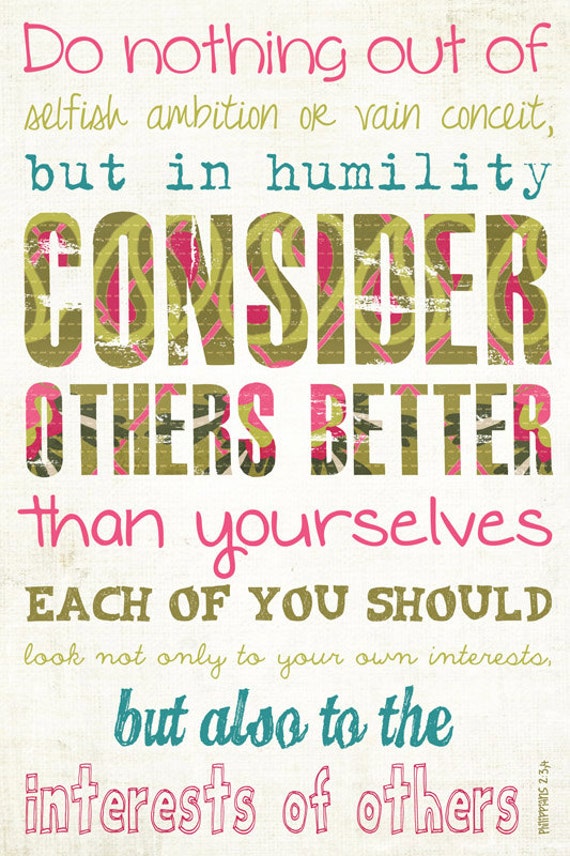SEVENTH: FINAL THOUGHTS ON
SERVING THOSE WITH CHRONIC NEEDS
… … … … …

… … … … …
Though you may feel that no one can understand
the depth of your despair,
our Savior, Jesus Christ, understands.
~D.F.U.~
… … … … …
As we come to the final thoughts on this discussion of serving those with chronic needs in our local bodies of Christ’s people, what should we come away with on our hearts? What new insights have you seen from those who are suffering for days, months, years on end with either their obvious or invisible manifestations? What about new perspectives from four church leaders from multiple places in the United States, different churches & varied denominations? What things did you see emphasized repeatedly from the women who chimed in with ideas on how they have seen their congregations serve the suffering, or ways they individually have sought to reach out?
What stood out to you?
What themes can be found repeated throughout this series?
What ways do you need served?
What ways do you need to serve?
How can you tailor your prayers?
Where can you offer your gifts or time?
How might the Lord be calling you to sacrifice of yourself?
In what areas do you see the Lord stretching your faith here?
… … … … …

… … … … …
Above all, keep loving one another earnestly,
since love covers a multitude of sins.
1 Peter 4:8
… … … … …
I see a call toward tangible love toward our brothers and sisters in Christ.
~love your brethren with your prayers and your words but also your actions, no matter which side of the suffering coin you find yourself on personally ~ I see countless opportunities here for “one-anothering“~
I see a need for enormous grace on all sides.
~have grace with those in need ~ have grace toward those who serve ~ have grace on those who you don’t see either suffering or serving ~ none of us deserve grace (which is why it is classified as grace!), but all of us are called to bestow it liberally~
I see openings for each one of us to sacrifice more.
~there are very infrequent cases where someone may be already sacrificing to the fullest extent of what the Lord has called them to, but for most of us (especially in modern American culture), there are absolutely ways that we could deeper sacrifice for others in our finances, with our time, sharing our food or other physical possessions, praying more diligently, sending encouraging notes or making uplifting phone calls, spending an entire day per week or month simply living your life for someone else’s family~
I see opportunities for each one of us to humble ourselves and exalt others.
~as sinful humans, we are born with a grabby nature; but here we have been shown opportunities over and over again for how we can put others ahead & above ourselves and our own desires or needs ~ are you grabbing for assistance from others when maybe the Lord is asking you to simply endure your suffering for His sake with joy and peace? ~ are you grabbing at your own comforts or plans when maybe the Lord is giving you places to give up your comforts or plans for the sake of lifting the burdens of others? ~ in what ways can you (yes, you!) humble yourself and rather exalt someone else?~
I see the calling for each of us to be more like Christ.
~as Christians, we should continually be growing more and more into the image of Jesus Christ Himself, through our sanctification, so how can we open ourselves to more of His nature overcoming our selfish sinful humanity when we see people suffering around us? ~ how can we do that when we are suffering, bound to our house for endless months, or bound to a bed in home or hospital for days at a time? ~ how do you feel the growing pains of growing up into Christ your Brother, as you now look around you at the brethren who may be suffering, whether you currently know it or not?~
… … … … …
Therefore let those who suffer according to God’s will
entrust their souls to a faithful Creator while doing good.
1 Peter 4:19
… … … … …

… … … … …
So in closing, what are a few last reminders & highlights of how we can serve those in our churches who are suffering various chronic needs?
- write notes of encouragement, whether a real card or an e-card or an e-mail
- make a phone call to pray with someone or just check in
- cook extra food & put it in your freezer so that you have something to share when you see a need
- offer to make food for someone, asking if they have specific recipes that suit their dietary needs that you can use
- ask someone if you can come to their house to cook with their ingredients in their kitchen: show up with joy, do the work, clean up even more than the mess you personally made, and bless the person not only with food in their freezer but with your cheerful presence
- read books or browse blogs for creative ideas on blessing someone who has X physical or mental need
- rather than ask “how are you?”, tailor the question for the person, “honestly, how have you seen Christ show up in your suffering this week?” or “I would love to hear the nitty-gritties on how your week has gone”
- give specific offers for help ~ specific tasks you are equipped to do, and a time you know you could show up to get it done
- give your phone number and emphasize that you will do what you can to drop what’s on your plate if something emergent comes up
- sign up to clean homes for those who are physically unable to do it
- sign up to fill a freezer at your church
- rally others to work alongside you to care for someone’s yard or run their errands or babysit their child(ren)
- drop off flowers for a random person just to brighten their day
- leave plates of goodies on a front doorstep, leaving unannounced without making the recipient feel awkward or have the need to make small talk
- pray diligently for people, and remind someone when you have actually prayed for them
- don’t be afraid to make people laugh, but don’t be afraid to make people cry
- put on a spirit of meekness & humility, and stop judging the actions or inactions of others
- recognize that there is not a single one of us who is not needy in one way or another; but we are still called to bear one another’s burdens
- use your time wisely and well ~ when you are serving your own family, and also when you serve someone else
- buy a $30 gift card next time you are at the grocery store, and find someone to bless with it
- buy things in bulk (think Costco or Winco), and then give away the excess portions (the second bottle of shampoo, the third pound of ground beef, the extra green beans you know will go bad before you eat them…) to someone in need
- dig up perennials from your yard or garden beds, and put them in little pots to deliver to someone who can not be out in their own yard or have their own garden
- share the extra produce from your vegetable garden or produce box with a neighbor
- when someone asks for help, go above & beyond what they have humbled themselves to request ~ give richly and joyfully
- if you absolutely cannot fill a need when you have been specifically asked, try to help them find someone else who can fill the need! ~ ask your spouse, ask your best friend, ask an older woman in your church, ask a church leader ~ don’t just say, “I’m so sorry I can not drive you tomorrow to your appointment” but go the extra mile and add, “but let’s go find someone together right now who is available” ~ sometimes we can not fill a need, but there are ways we can help the need be filled nonetheless
- preach grace ~ from pulpits and from fingertips
- take someone out to coffee just because, or bring their favorite drink to them if they are homebound
- remind someone with physical limitations that they are invaluable, and help them find non-physically-demanding ways to serve (phone calls? prayer chain? offering to have Bible study or choir practice in their home?)
- remind someone with mental limitations that they are invaluable, and help them find ways to serve (if you can’t leave your home, can we come to you? if being around people or noise is overwhelming, could you do some cooking for someone else? can you cook or clean for someone else, even in the midst of your own mental suffering? if you have no energy, no time, no mental capacity to do a physical thing for someone else and can honestly not even keep up with the demands of your own home & family, could you write about your suffering to teach the rest of us who can not begin to wrap our heads around the thorn in your side? can you lead online prayer chains?)
- ask to be on a prayer list ~ offer to put someone else on a prayer list
- try your best not to stick your foot in your mouth ~ silence or an understanding squeeze of the hand can be enough
- if you don’t know what to say, say THAT without apology
- ask for elders to come pray in your home or to bring communion to you ~ if you are the caretaker or spouse of someone who is bed-ridden or home-bound, be the voice & advocate of the suffering one, and request these specific things ~ even leaders of churches will need someone to graciously teach them and help peel scales from their eyes
- don’t give up when the suffering has no end in sight
- acknowledge that you don’t understand what the other is going through ~ either in their obvious suffering or in their lack of it
- offer free babysitting, along with a Starbucks (or other date-type place) gift card
- invite someone over, and ask how you can make it possible for them to be comfortable in your home (allergies, dietary restrictions, time constraints, a place to lie down, making it quiet enough by having your children watch a movie in an upstairs room or putting the barking dog far away)
- sometimes people have to plan way ahead, so make the sacrifice of putting something on the schedule to really help & truly fellowship
- sometimes people can not plan more than a few hours in advance, so learn how to be more flexible and invite someone over last-minute
- take the caretaker/spouse of the suffering person out to eat, out to play frisbee, or to your home for a time of prayer
- focus more on others than on yourself
- before you donate items to a thrift shop (furniture, clothing, books, appliances), see if anyone in your church has need of your things ~ be willing to drop stuff off for others at their homes if they need your old washing machine, your used maternity clothing, other clothing (sometimes chronic illnesses or even the medications for physical or mental illnesses can cause unpredictable weight loss or weight gain, and it can be difficult to shuffle one’s wardrobe back & forth without emptying the pocketbook), the books you collected on depression & anxiety or autoimmune diseases, extra chairs for around their table, etc.
- don’t be shy about asking your church leaders for assistance; whether food or prayer or home/yard chores or childcare or transportation or financial assistance… humble yourself and ask for blessings… who would give a stone when asked for bread?
- give an extra check in your church offering for the benevolence fund
- remind your friends that it is okay if their kids need to be watching more movies than seems preferable, during this season of suffering
- try not to give unsolicited advice
- pray ceaselessly for the suffering around you
- be in it for the long haul with joy
- share what you have, give what you can ~ just show up and be faithful with what you’ve been given
- grace, grace, grace, grace, GRACE!!!
… … … … …
Put on then, as God’s chosen ones, holy and beloved, compassionate hearts, kindness, humility, meekness, and patience, bearing with one another and, if one has a complaint against another, forgiving each other; as the Lord has forgiven you, so you also must forgive. And above all these put on love, which binds everything together in perfect harmony. And let the peace of Christ rule in your hearts, to which indeed you were called in one body. And be thankful. Let the word of Christ dwell in you richly, teaching and admonishing one another in all wisdom, singing psalms and hymns and spiritual songs, with thankfulness in your hearts to God. And whatever you do, in word or deed, do everything in the name of the Lord Jesus, giving thanks to God the Father through Him.
Colossians 3:12-17
… … … … …
God our heavenly Father, please bless each of your children who have participated in this discussion over the last week. Please soften our hearts where we have been hardened, please humble us where we have been proud, please open our eyes where they were covered in scales, please unplug our ears where they were not listening. Teach us to love one another in word and in deed. Teach us to shower one another in grace upon grace upon grace. Make us more like Christ as we live together in local manifestations of His body.
We are Your chosen ones, O God ~ we are holy and we are beloved. Please teach us to treat one another as holy, beloved, chosen children of the Father. Please clothe us with compassionate hearts, kindness, humility, meekness, and patience! Please enable us to bear with one another, and show us how to do this with the compassion, kindness, humble hearts, meek spirits, and patient diligence that would most glorify You. When we strive against one another, when we begrudge one another for any reason, please plant a root of forgiveness in our hearts that will grow and bloom and blossom and bear sweet fruit, just as the forgiveness You have so freely offered us through Christ our Lord bears fruit in our own lives.
But above all the rest of this, heavenly Father, clothe us with love. The love of God is greater far than tongue or pen can ever tell! And this is the love that we need to imitate, that we must pray for, as we grow up as Your children into Your image. Grant us love beyond measure, so that we can be bound in perfect harmony by Your grace.
Fill our hearts with the peace of Christ, and rule us by that peace so that our homes and our relationships ooze nothing but peace. We were called to His peace in one body, and we ask You to fulfill that calling by filling our cups to overflowing with the peace of Christ. Make us thankful. Teach us to be content with where you have us, suffering and all, with thankful hearts. Put words on our lips that demonstrate thankful hearts.
Put within us the words of Christ so that His rich wisdom and understanding fills us and shapes our relationships with one another. Give us Scripture and holy words in our hearts and minds as we memorize and meditate on Your Word. Give us opportunities to teach, admonish, encourage, and exhort one another with wisdom ~ and increase our wisdom by Your grace more and more as the day of Christ’s return draws nearer. Help us grasp opportunities to sing together, to proclaim psalms and hymns and spiritual songs to one another and for one another. Fill our hearts and heads with music that glorifies You and teaches us all the more about You. Grant us thankfulness to You as we give and receive wise, godly counsel and song.
By the power of Your Spirit, O God our Father, enable us to do all things, in word and in deed, in the name of the Lord Jesus to whom we belong and in whose blood we ourselves are covered and granted forgiveness. Strengthen us to give thanks to You, Father God, through Jesus Christ our Lord, as we serve, as we suffer, as we live together in the body of Christ and as we pray for the furtherance of Your Kingdom here on earth in our own homes.
Thank You, God, for hearing our prayers and granting us grace in this conversation. To You be all glory, now and forever. Amen.
… … … … …

~part of our series, Serving Those in The Church with Chronic Needs~























